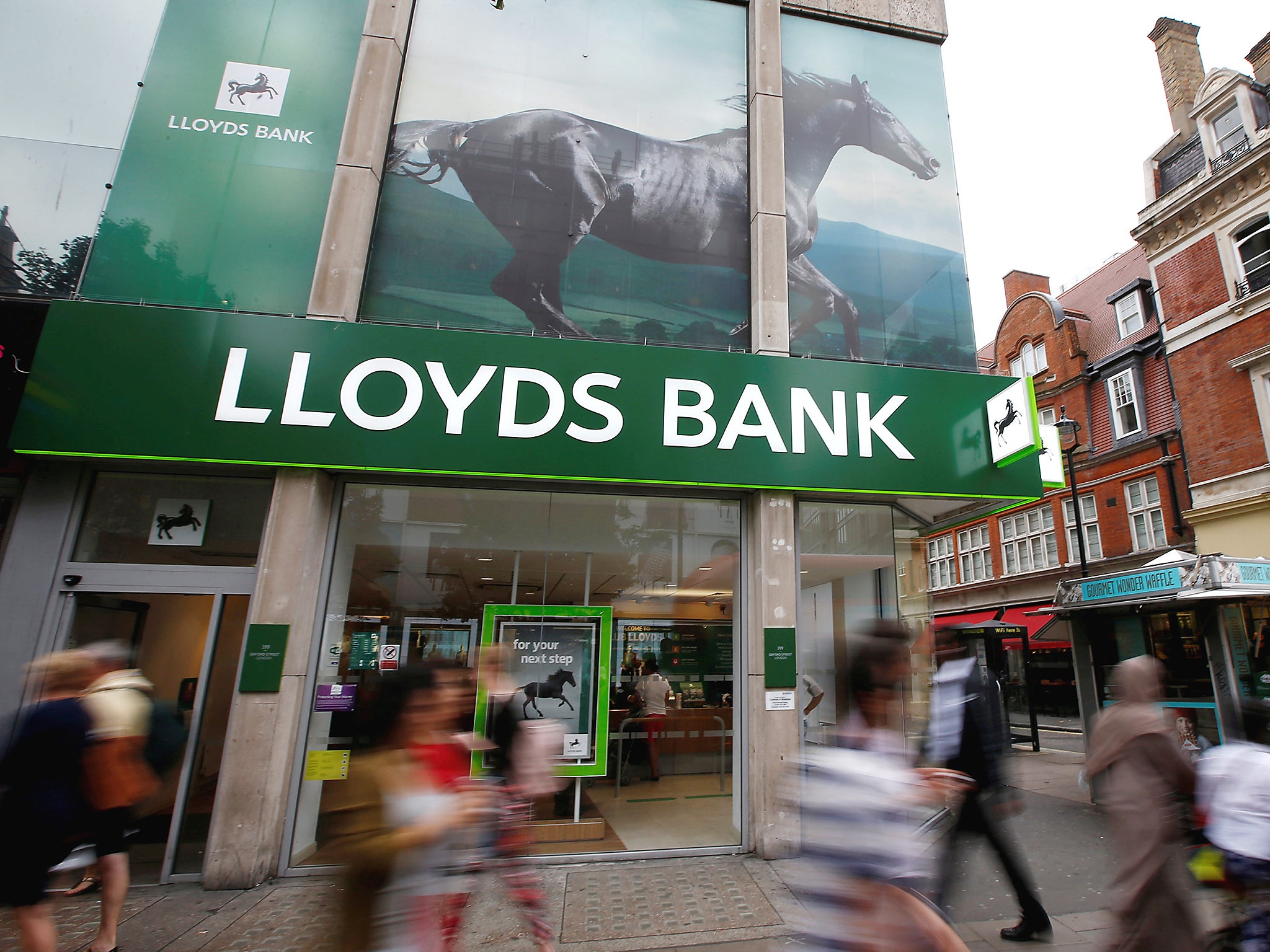Lloyds makes a tonne of money but conduct costs cast a dark shadow
The amount paid out to compensate people who bought worthless PPI policies is staggering

Your support helps us to tell the story
From reproductive rights to climate change to Big Tech, The Independent is on the ground when the story is developing. Whether it's investigating the financials of Elon Musk's pro-Trump PAC or producing our latest documentary, 'The A Word', which shines a light on the American women fighting for reproductive rights, we know how important it is to parse out the facts from the messaging.
At such a critical moment in US history, we need reporters on the ground. Your donation allows us to keep sending journalists to speak to both sides of the story.
The Independent is trusted by Americans across the entire political spectrum. And unlike many other quality news outlets, we choose not to lock Americans out of our reporting and analysis with paywalls. We believe quality journalism should be available to everyone, paid for by those who can afford it.
Your support makes all the difference.Still, Britain’s big banks are haunted by the sins of the recent, and the not so recent, past.
Take Lloyds, that lean, mean, money-making machine. Or at least it should be.
Finally out of state hands, the black horse has turned in what look to be another fine set of results, and yet analyst Ian Gordon had the right of it when he growled that while the numbers were “another material beat” the bank’s “one offs still frustrate”.
The business reported a statutory profit of £2.5bn, a 4 per cent improvement over the first half of 2016, and the best number it has produced in years. But consider how much better it would have been were it not for £1.6bn of conduct related charges.
The lion’s share of those relate to the mis-selling of payment protection insurance and show just why banks pushed so hard for the Financial Conduct Authority (FCA) to impose a cut off date for claims.
The £1.05bn total charge taken to cover PPI compensation during the first half the year brings the total cost to the bank to just over £18bn.
It’s hard to get a true sense of what a number that big actually means when it stares back at you from a screen. So let’s have a go at quantifying it.
One of last year’s big stories in health was the £2.45bn deficit run up by the Barts NHS Trust.
The amount of money Lloyds has wasted on PPI would cover that gap more than seven times over.
It would buy the Government’s beloved trident nuclear missile system for it, with change left over for still more toys.
It is nearly 14 times the size of Justine Greening’s £1.3bn education bailout.
The average Ocado customer puts £108.45 in their shopping basket. It would buy 166m of them.
Lloyds could have bought 1.4m new Ford Fiestas, 940,000 Ford Focuses, or 830,000 Ford Mondeos. That assumes entry level models, but bulk purchase discounts would have covered any bells and whistles its fleet managers fancied.
Despite all this you will still find bankers who attempt to argue that they did nothing wrong in selling a product that was essentially worthless to most of the people that bought it, including some very senior bankers that I’ve talked to.
Banking needs to be regulated very tightly because that tells you just how easily it could happen again.
PPI mis-selling isn't the only misconduct to cast a shadow over Lloyds' results. And before industry favoured words such as “historic” or “legacy” are floated, consider this. Back in 2013 it emerged that the bank's toxic remuneration system saw one dozy salesman mis-selling a life insurance policy he couldn’t afford to himself.
After paying a heavy fine, the company said it was ditching the targets that led to that sort of thing. Yet just last year staff were sounding alarm bells about them creeping in by the back door.
Lloyds has also come under fire for its flat footed response to the small businesses caught up in the ugly Reading HBOS fraud (as the owner of HBOS Lloyds is now liable) which saw a manager and his associates jailed.
You’d think shareholders would have been on the bank's case about all this, and more. Why do you keep wasting our money? And yet institutional investors simply shrug, classify conduct costs as “one offs” and use that word “historic” about them. Which is exactly what the banks want them to do.
Lloyds' shares have been trending higher if you look at the last 12 months. Dividends are flowing again. Why worry?
It again serves to highlight the flaws in giving shareholders primacy when it comes to UK corporates, an issue raised by the Institute for Public Policy Research’s Commission on Economic Justice a couple of weeks ago.
Meanwhile, it’s barely 18 months since the Financial Conduct Authority scrapped what would have been a wide ranging review into banking culture.
That decision looks more questionable by the day.
Join our commenting forum
Join thought-provoking conversations, follow other Independent readers and see their replies
Comments